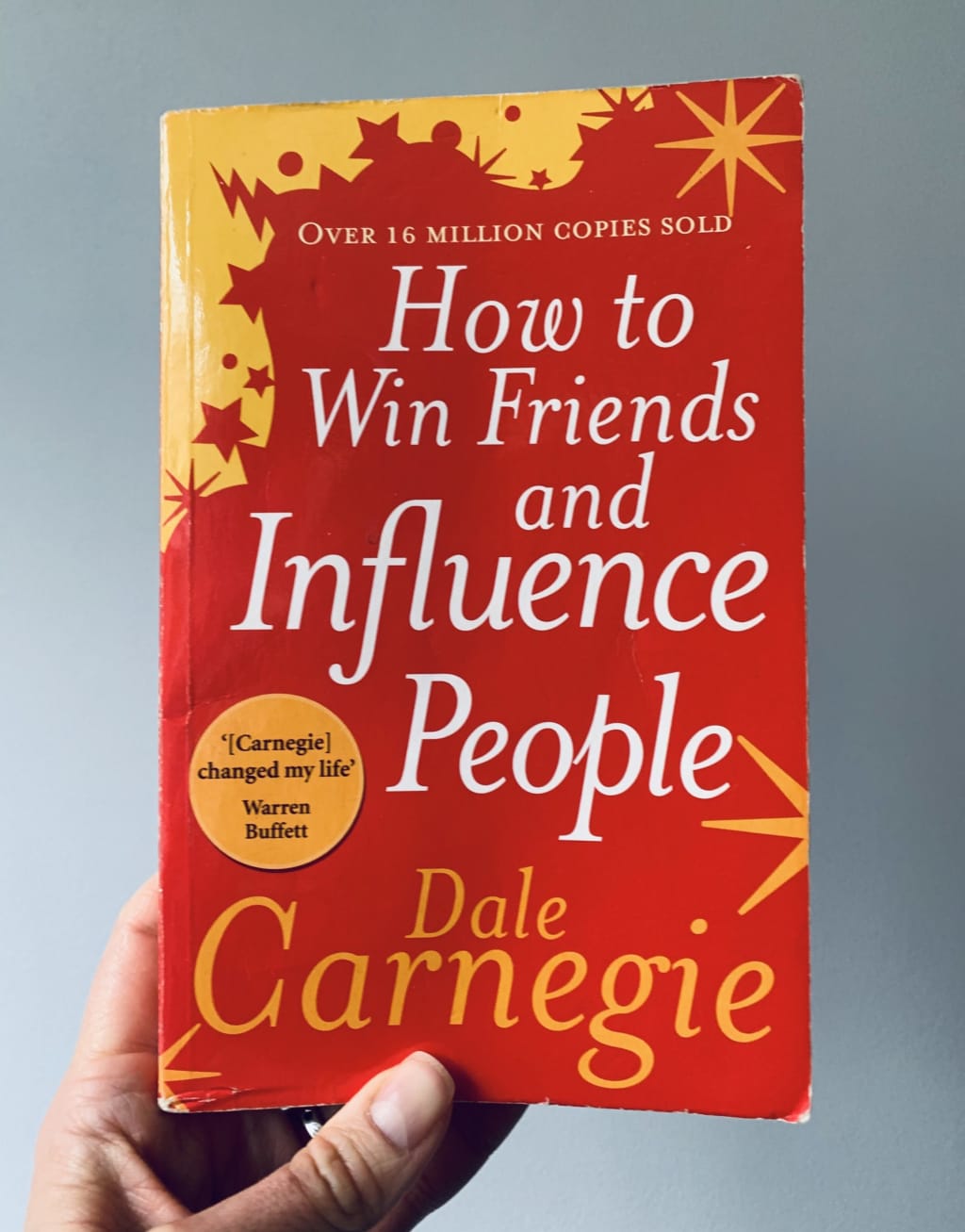
"How to Win Friends and Influence People" by Dale Carnegie is a timeless self-help book that offers practical advice on improving social interactions and building positive relationships. Published in 1936, it has since become one of the most influential books in personal development and has helped millions of readers transform their lives.
Part 1: Fundamental Techniques in Handling People
Don't Criticize, Condemn, or Complain:
Carnegie emphasizes the importance of refraining from criticism, condemnation, and complaining. He explains that such negative behaviors not only damage relationships but also fail to bring about positive change. Instead, he suggests understanding and empathy as effective approaches to resolving conflicts and improving interpersonal dynamics.
Give Honest and Sincere Appreciation:
Carnegie highlights the significance of genuine appreciation in building stronger connections with others. He advises readers to express appreciation sincerely and specifically, acknowledging others' efforts and accomplishments. By doing so, individuals can cultivate goodwill and foster harmonious relationships.
Arouse in the Other Person an Eager Want:
Carnegie suggests that understanding others' desires and motivations is crucial for influencing their behavior. By identifying what drives people, individuals can present their ideas and suggestions in a way that resonates with others' interests and aspirations. This approach helps to gain cooperation and build mutually beneficial relationships.
Part 2: Six Ways to Make People Like You
Become Genuinely Interested in Others:
Carnegie highlights the importance of genuine interest in building rapport. By actively listening and showing curiosity about others' lives, thoughts, and experiences, individuals can create meaningful connections and foster mutual liking.
Smile:
A simple smile can have a profound impact on interpersonal interactions. Carnegie emphasizes the power of a genuine smile in creating a positive atmosphere and making others feel valued and appreciated. Smiling is a universal language that can help individuals establish instant connections and leave a lasting impression.
Remember People's Names:
Carnegie emphasizes the significance of remembering and using people's names. By doing so, individuals can demonstrate respect and show that they value others as individuals. Remembering names helps to establish stronger connections and makes interactions more personal and meaningful.
Be a Good Listener and Encourage Others to Talk About Themselves:
Carnegie advocates for active listening as a key skill in building relationships. By genuinely listening and encouraging others to share their thoughts, ideas, and experiences, individuals can create a positive and engaging environment that promotes meaningful communication and fosters liking.
Talk in Terms of the Other Person's Interests:
Understanding others' interests and perspectives allows individuals to tailor their conversations to topics that genuinely engage the other person. By focusing on the other person's passions and preferences, individuals can create a sense of connection and enhance mutual liking.
Make Others Feel Important and Do It Sincerely:
Carnegie emphasizes the importance of making others feel significant and appreciated. By expressing genuine admiration and recognizing others' contributions, individuals can build strong bonds and influence others positively. This approach helps to create an environment where people feel valued and respected.
Part 3: How to Win People to Your Way of Thinking
The Only Way to Get the Best of an Argument is to Avoid It:
Carnegie advises readers to avoid arguments as they rarely lead to positive outcomes. Instead, he suggests seeking common ground, understanding others' viewpoints, and finding mutually acceptable solutions to disagreements.
Show Respect for Others' Opinions:
To win people over to your way of thinking, Carnegie suggests respecting others' opinions and perspectives. By acknowledging their viewpoints and demonstrating an open mind, individuals can create an atmosphere conducive to constructive discussions and persuasion.
If You're Wrong, Admit It:
Carnegie emphasizes the importance of admitting mistakes and taking responsibility for them. By acknowledging errors, individuals can build credibility and trust. This approach fosters a culture of honesty and openness that encourages others to do the same.
Begin in a Friendly Way:
Starting conversations or negotiations with a friendly and positive attitude can set the tone for productive interactions. Carnegie suggests avoiding confrontational or aggressive approaches and instead creating a welcoming atmosphere that promotes cooperation.
Get Others to Say "Yes" Immediately:
Carnegie explains the power of getting others to agree with you by presenting ideas or suggestions in a way that elicits an immediate positive response. By seeking agreement on small, incremental steps, individuals can build momentum and increase the likelihood of others supporting their overall objectives.
Let the Other Person Do Most of the Talking:
To win others over to your way of thinking, Carnegie advises giving them the opportunity to express their thoughts and opinions. By allowing them to talk, individuals can gather valuable insights, better understand their perspective, and tailor their arguments accordingly.
In Conclusion:
"How to Win Friends and Influence People" is a comprehensive guide that offers practical strategies for improving interpersonal relationships, enhancing communication skills, and influencing others positively. By applying the principles outlined in the book, readers can transform their personal and professional lives, leading to greater success, happiness, and fulfillment.






Comments
There are no comments for this story
Be the first to respond and start the conversation.